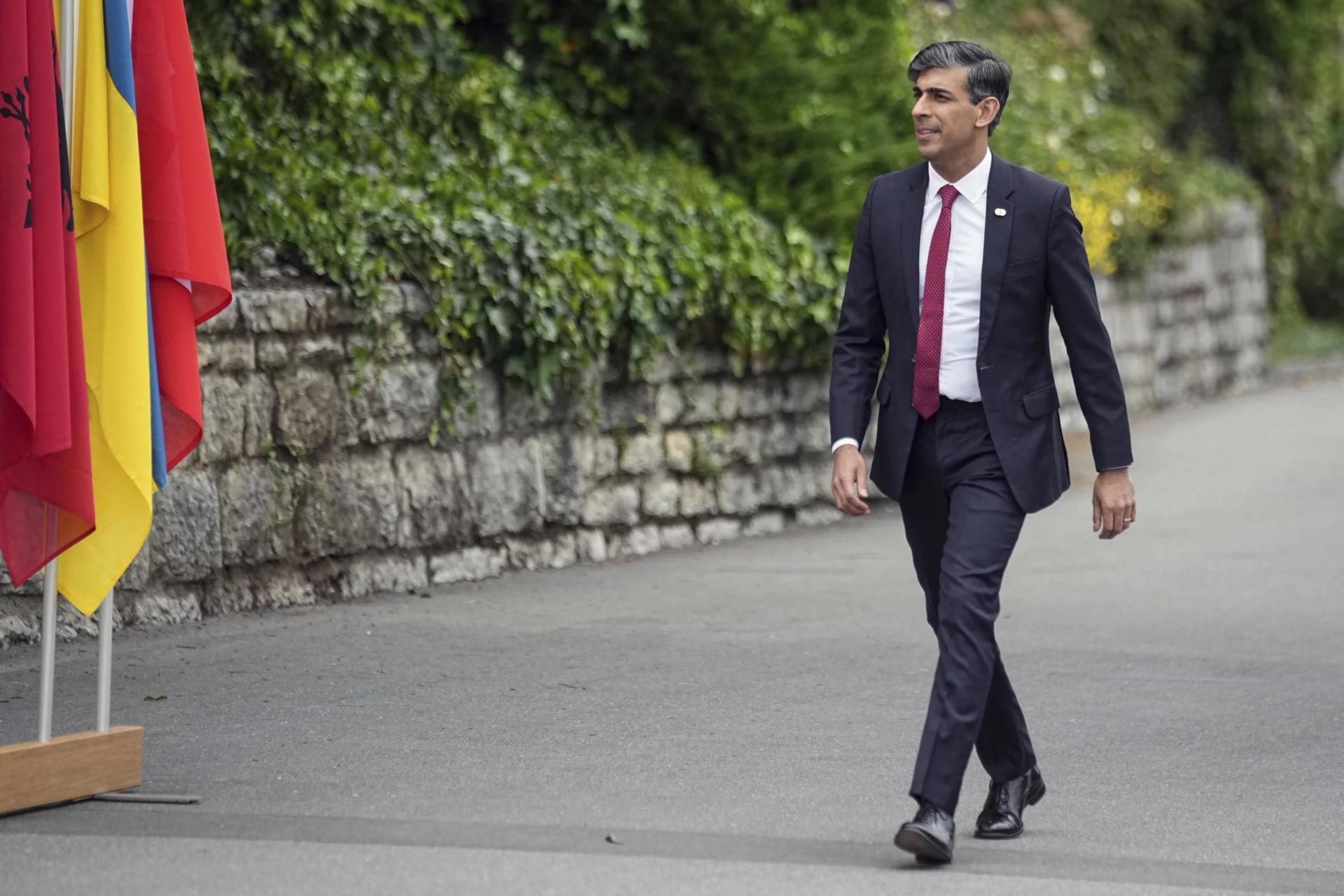LEICESTER, United Kingdom – Britain’s leading Catholic refugee agency says both major parties seem to have negative views towards asylum seekers, showing “how low our politics has sunk.”
UK Prime Minister Rishi Sunak, leader of the ruling Conservative Party, debated Labour Party leader Keir Starmer last week in a televised debate. Starmer is leading in the polls, and expected to win in a landslide during the July 4 Parliamentary election.
The debate on the BBC on June 26 was the last between the two leading leaders ahead of the vote, and immigration was a main topic.
Parliament passed the Conservative government’s Rwanda bill early in April, and Sunak at the time said it was “a fundamental change in the global equation on migration.”
The plan would send asylum seekers landing in the UK from across the English Channel by small boat to the African nation of Rwanda.
During the debate, Sunak spoke about the Conservative Party’s commitment to reducing net migration through a migration cap, including a 30 percent reduction in visa issuance as evidence of future success.
In his talks, Starmer said the Labour Party would also lower the net migration figures, highlighting his party’s plan to reduce the British economy’s dependence on overseas workers and prioritise training the local workforce.
“In this week’s election debate, the Prime Minister and leader of the opposition accused each other of pursuing policies that would grant refugees sanctuary, as if this were a great fault. It laid bare just how low our politics has sunk,” said Sophie Cartwright, the Senior Policy Officer at Jesuit Refugee Services UK.
“Faced with a question about border control, the Prime Minister touted the government’s plan to forcibly send people seeking asylum to Rwanda. In response the leader of the opposition attacked the Prime Minister for not processing people’s asylum claims because ‘until they are processed they cannot be returned to where they came from.’ He noted that the government could, after all, only remove a few hundred people to Rwanda,” she said.
Cartwright noted Sunak “derisively” mentioned most asylum seekers come from countries such as Iran, Syria, and Afghanistan, “going on to suggest that because it would be impossible to return people to such countries, we should ignore their claims and forcibly send them to Rwanda.”
“People claiming asylum, the argument went, are from really dangerous places, so processing their claims would mean we were forced to grant them safe haven. Therefore, we shouldn’t even consider their cases,” she said.
She pointed out Starmer might have been expected to respond by saying that yes, processing asylum claims would mean that people who have fled brutal regimes and conflict could be granted asylum here, and that is right.
“Yes, we should be a country that offers sanctuary to refugees. Instead, he focussed on the impossibility of removing anyone without first processing their claims, and the irrelevance of the Rwanda plan, given the small numbers involved,” she said.
“Throughout the argument, the Prime Minister and leader of the opposition appeared united in the assumption that forcibly removing people who have fled to the UK in order to escape the Taliban was a commonsense policy goal,” Cartwright said.
She said in the debate between the two major party leaders, removing refugees was the only thing that mattered.
“The whole argument hinged on what was the most practicable way to do that at scale. Any sense of humanity towards refugees, or legal justice for them, was absent from this discussion,” she explained.
“We have experienced years of increasingly dehumanizing language and hostile policies towards refugees. We have witnessed our asylum system, that denies people the sanctuary they badly need and abuses those it ought to protect, become even worse as politicians across the spectrum demonize desperate people who are trying to reach safety,” Cartwright continued.
“Much of this discourse tries to deny that people in the asylum system have fled danger. In this discussion, the Prime Minister stared that fact squarely in the face, but treated it as morally irrelevant, a logistical problem, albeit a big one, and this attitude remained unchallenged by his opponent,” she added.
She called this a “new low” in the UK’s political discourse.
“The very idea that we have a duty to offer sanctuary to refugees, or that it is wrong to forcibly send people into danger has been abandoned. Immigration control is seen as so fundamentally important that human life is not even just less important – it is irrelevant,” the Jesuit Refugee Services UK member said.
She said this attitude has not come out of nowhere, explaining it has grown from years of “vaunting hostility” towards refugees.
“Successive governments have removed asylum seekers’ right to work, consigning them to poverty; expanded and routinised immigration detention, a system of indefinitely incarcerating people purely for immigration purposes; established the hostile environment that weaponises human suffering as a means of immigration control; ghettoised people in containment sites; and banned claiming asylum under the Illegal Migration Act. Throughout, people refused asylum have been intentionally made destitute,” Cartwright said.
She said the members of the Jesuit Refugee Services UK “stand with refugees.”
Follow Charles Collins on X: @CharlesinRome













